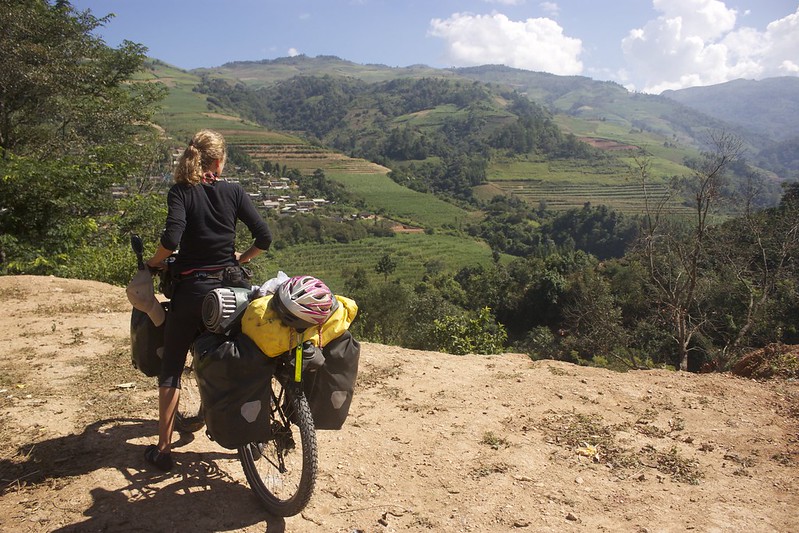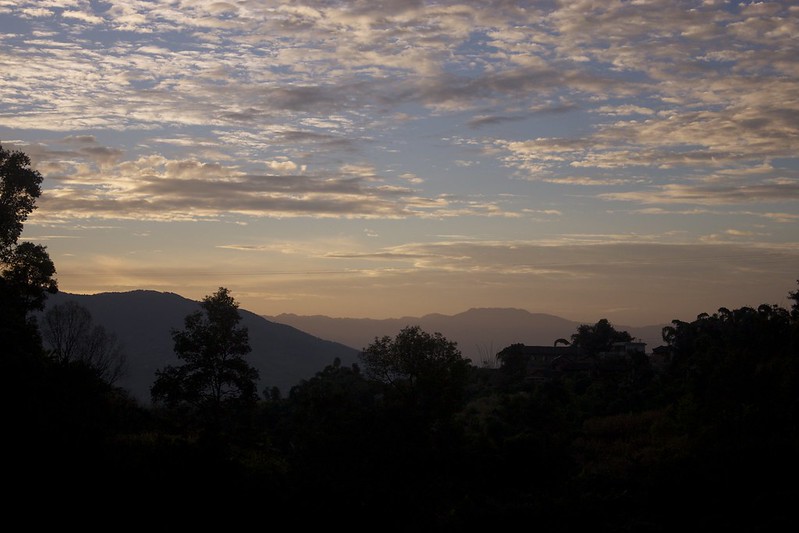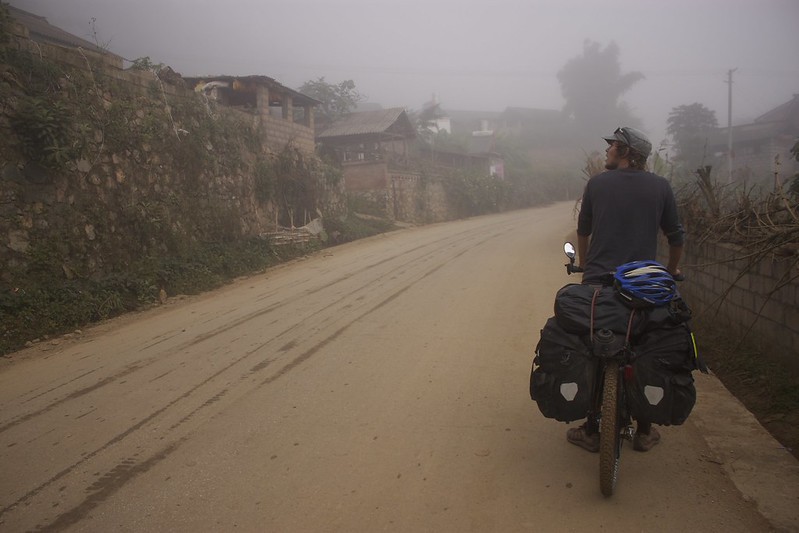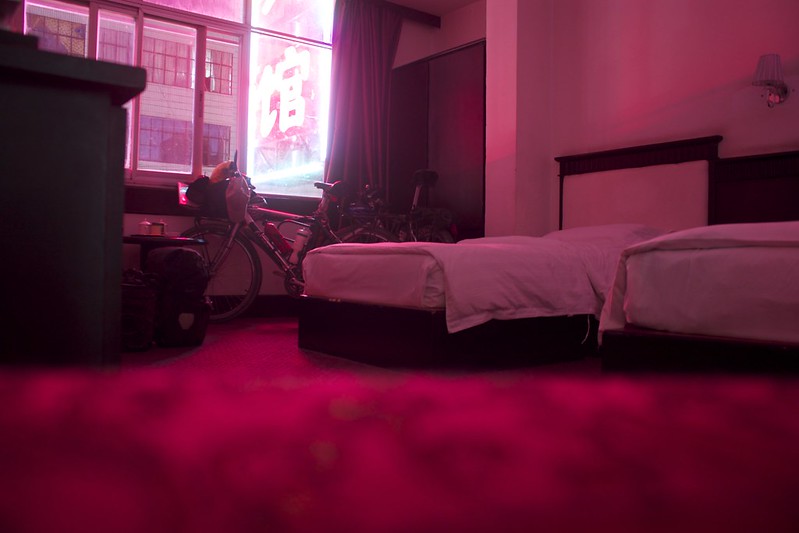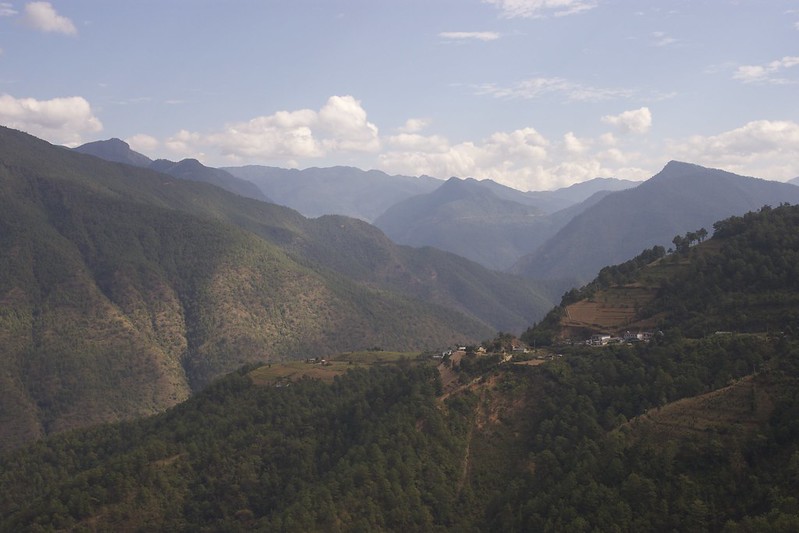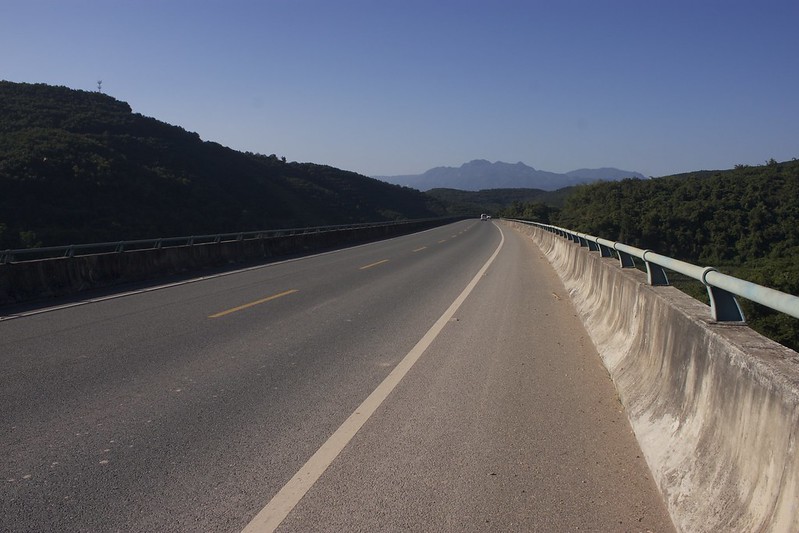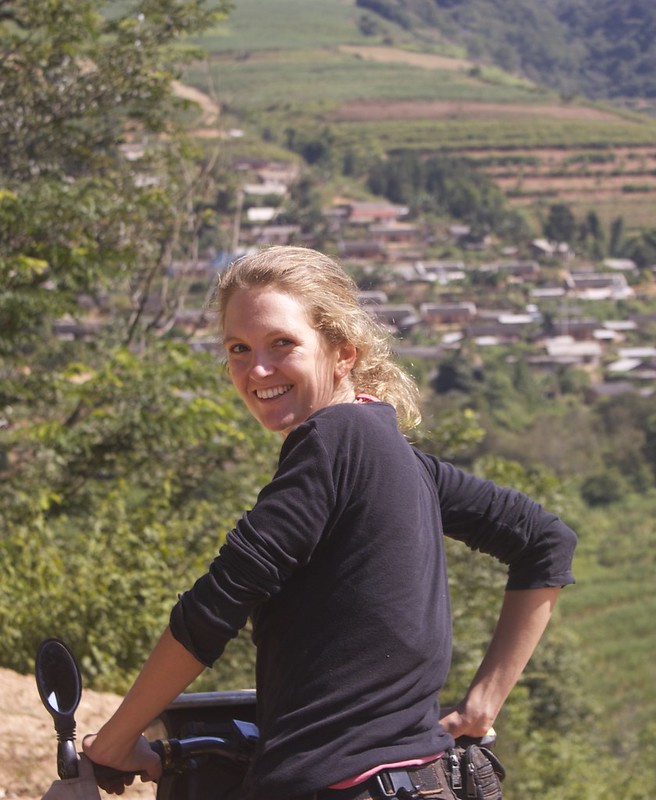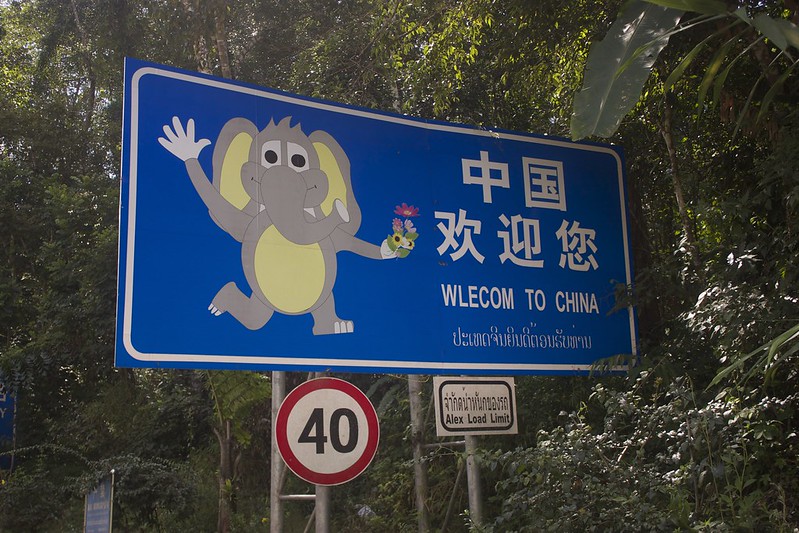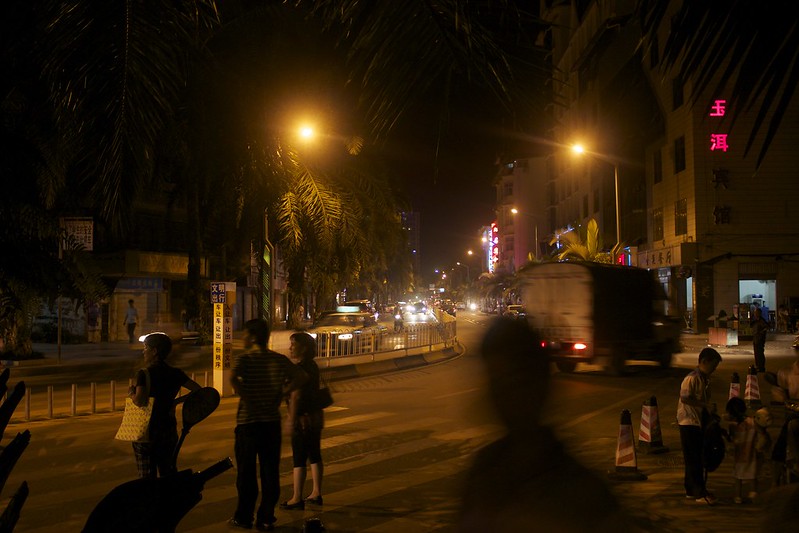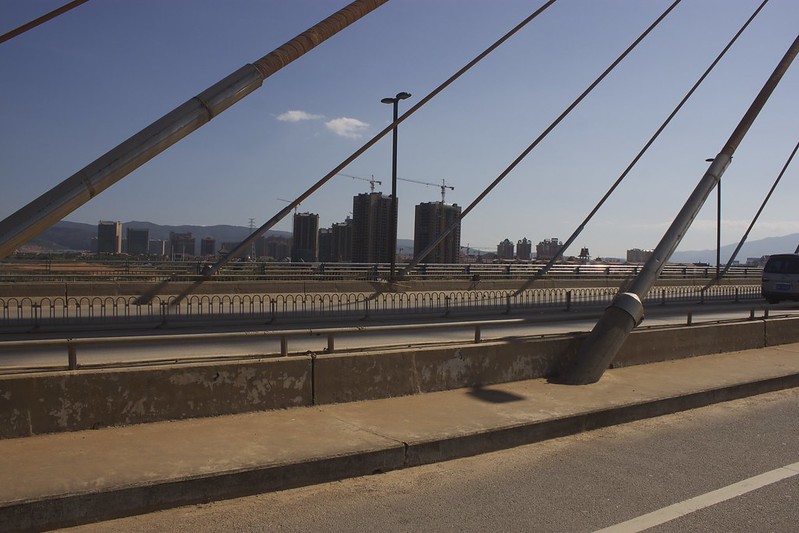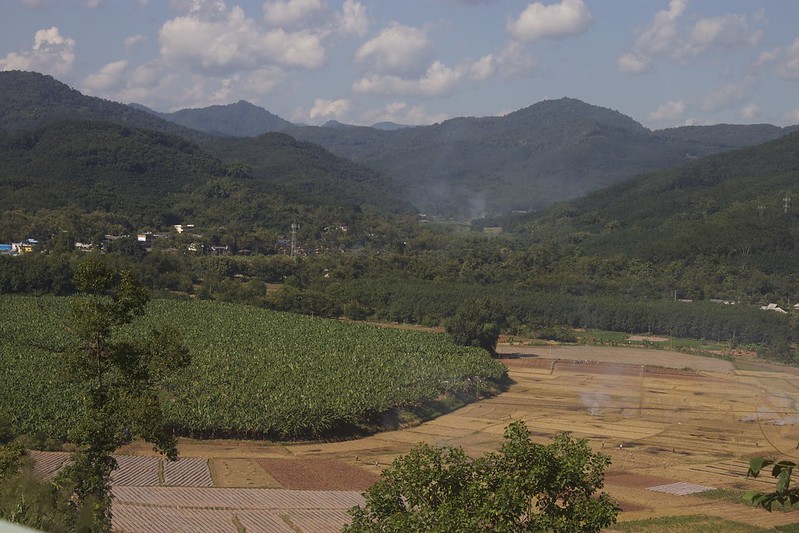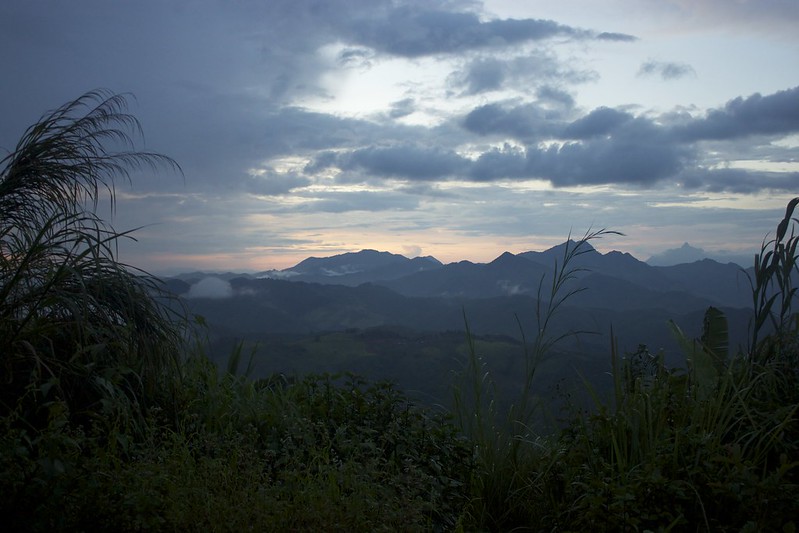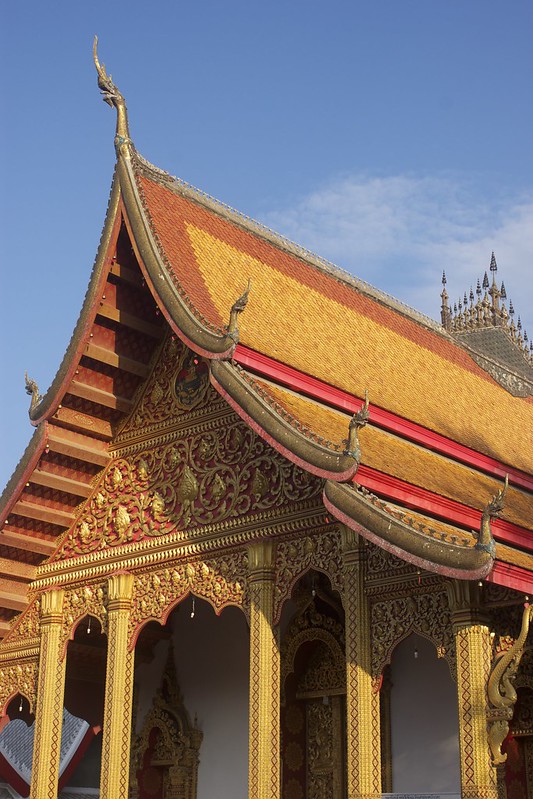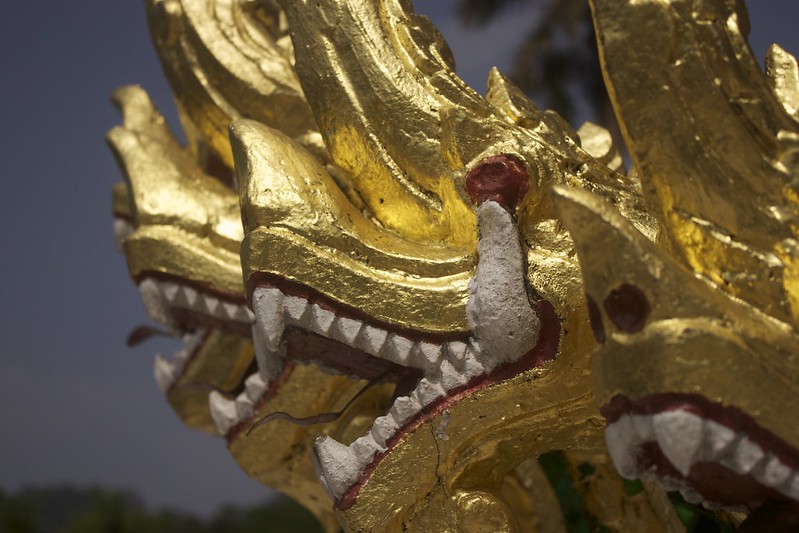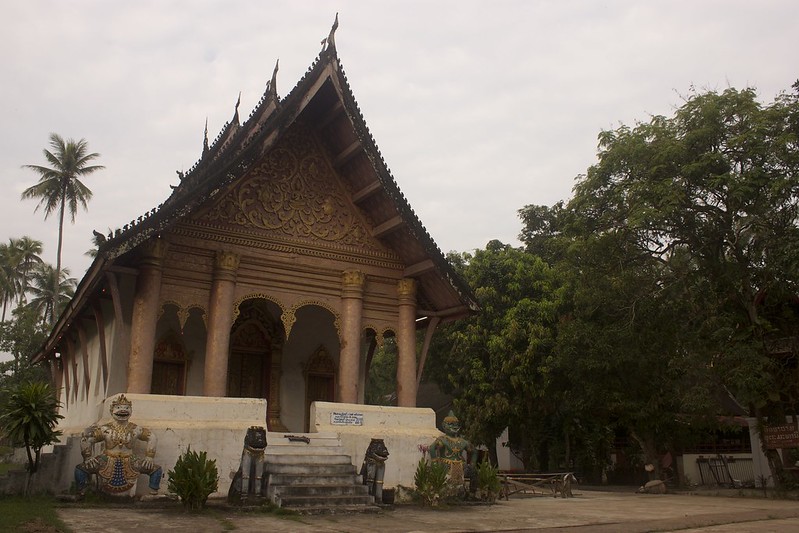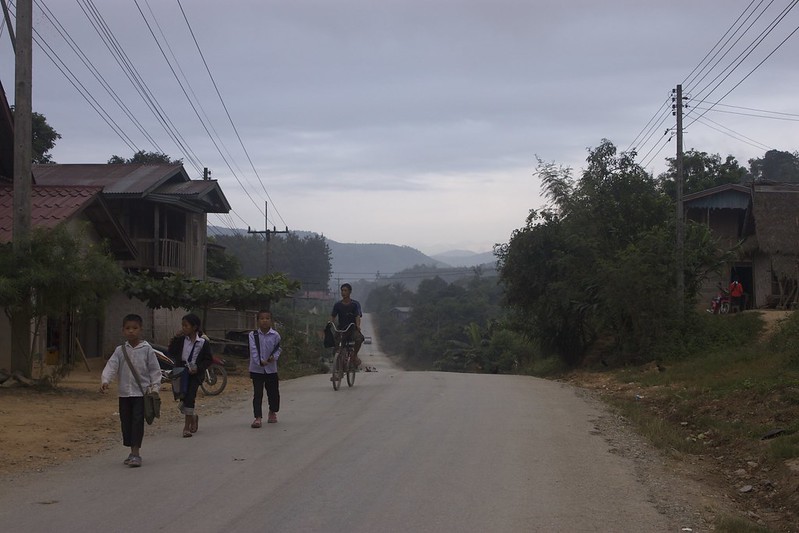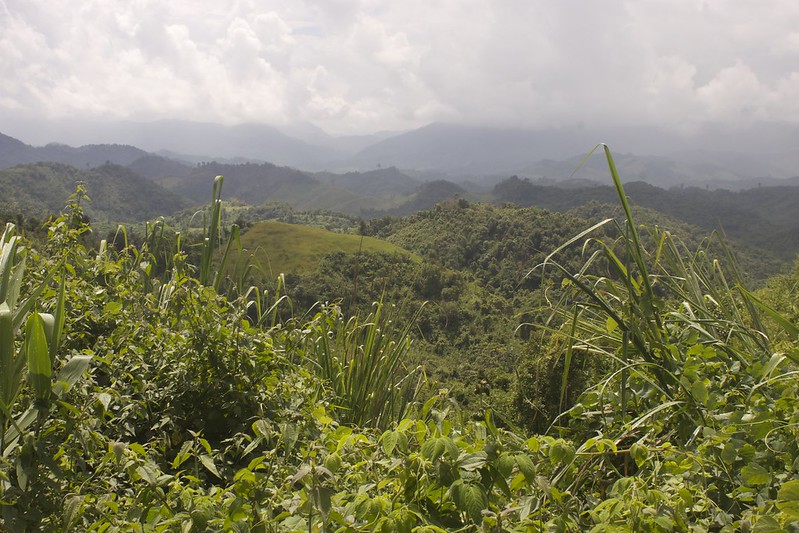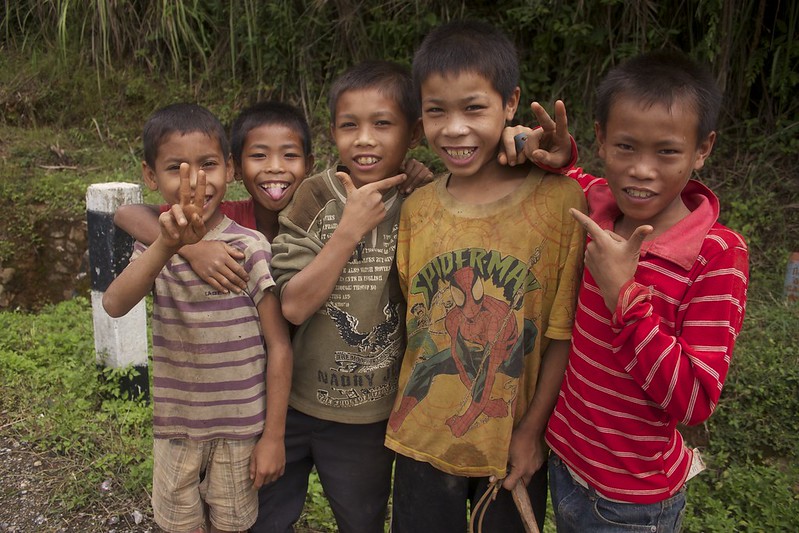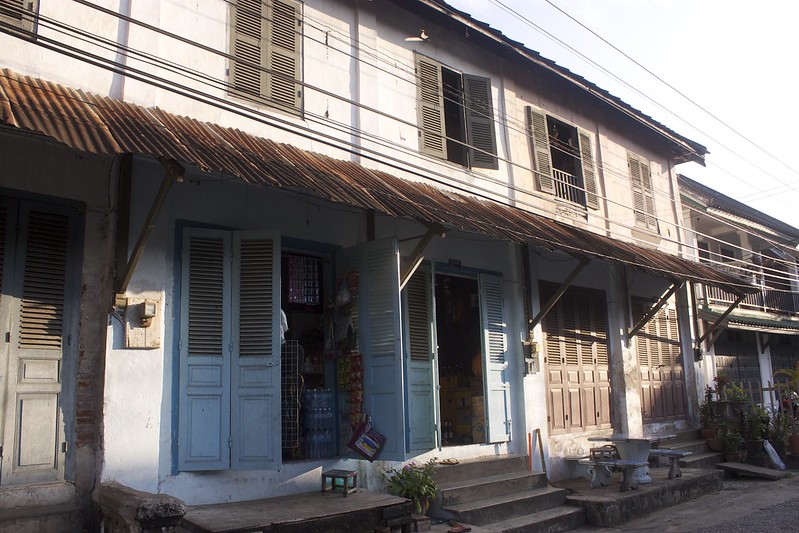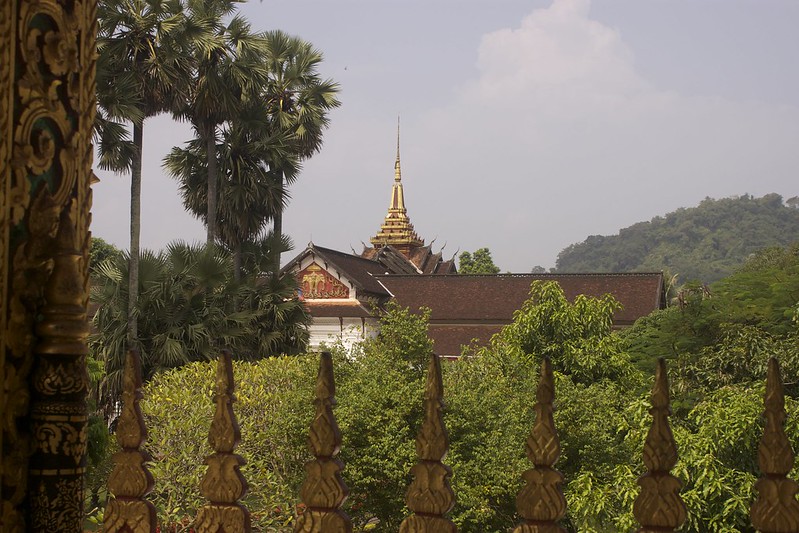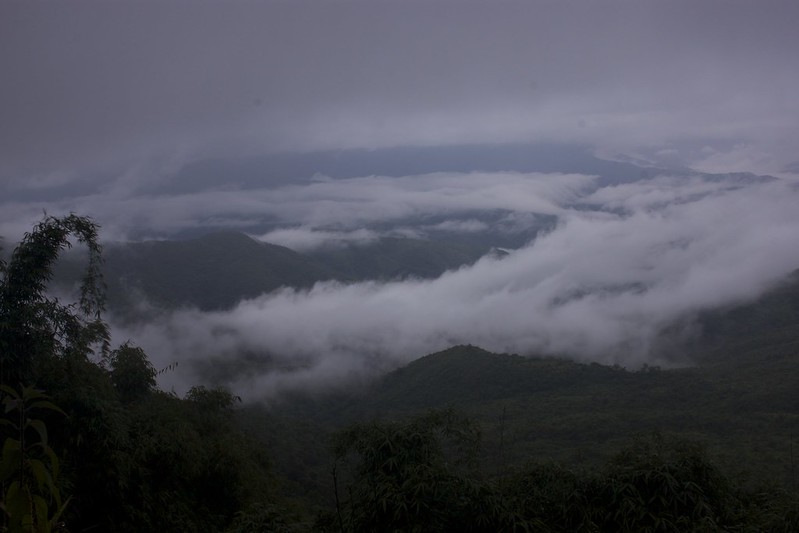I couldn’t help but smile as our bicycles were wheeled out from the back of the shop. After weeks of riding on gouged rims, fraying tyres and a collapsing bottom bracket, our bikes were finally restored. Liv twanged the spokes on her new wheels as I wound my pedals, delighted at the fluid motion. Everything was falling into place. We had made it to China, found a track to bypass the mountain road closures, established how and where we could extend our 30 day visas, and now at last our bikes looked ready for it.
It was a good job too. Besides the coming cold and high altitude, we had only twelve weeks to cover the 4,500 kilometres to Beijing. That was something like riding Aberdeen to Athens with four 4000 metre passes and a side-trip to Copenhagen thrown in for good measure. And to make things worse, the lay of the visa offices and our insistence on riding through the mountains meant we’d need to cover half of this distance in the final month alone. Yet as we pedalled test laps outside the shop—our bikes working beautifully, our route finally fixed in our minds and the momentum of a year’s riding surging up behind us—it felt only right that the finale should trap us with a proper challenge. We were ready for it.
****
By the time we left Jing Hong we’d been in China for more than a week, which left us about three to cover the thousand kilometres to the visa office in Zhongdian on the edge of the mountains. We set out on a bright clear morning, following a road that would take us north and avoid the major highways. In the first few days we rode up onto a low plateau and on into some gentle hills. The landscape was farmed but generally sparsely populated. We rode through little hillside villages purring with chickens, through forests of pine and down between the steep rocks of the Nanting River gorge.
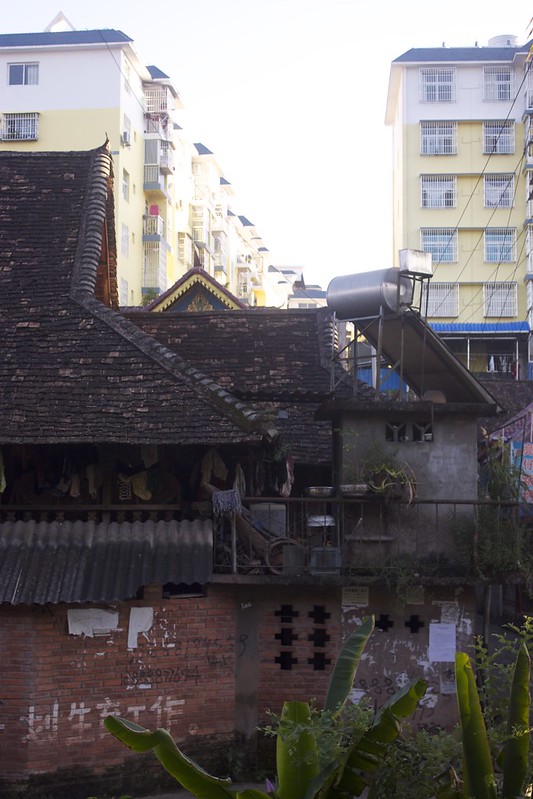 We regularly passed by small cities and planned each day around reaching one before sunset so we could easily secure food and accommodation. None were as pleasant as Jing Hong had been, but they were all interesting in their own right. Many seemed to have freshly popped from the kernel of an old town: these dense clusters of pristine terracotta-coloured apartments standing out like icons on the plains. Sometimes when we rode in we’d find these micro-cities almost deserted, the city built but the population yet to break above its original size. Other cities were grizzled with age and busier, but tucked away on the periphery out here, none of them had swollen into monsters.
We regularly passed by small cities and planned each day around reaching one before sunset so we could easily secure food and accommodation. None were as pleasant as Jing Hong had been, but they were all interesting in their own right. Many seemed to have freshly popped from the kernel of an old town: these dense clusters of pristine terracotta-coloured apartments standing out like icons on the plains. Sometimes when we rode in we’d find these micro-cities almost deserted, the city built but the population yet to break above its original size. Other cities were grizzled with age and busier, but tucked away on the periphery out here, none of them had swollen into monsters.
Two things united every shack, village and city we encountered: the people and the portions. Our interactions were pleasant without exception. We were never a spectacle and always met on equal terms. And although barely anyone spoke English and we barely any Chinese, everyone was patient and intelligent in interpreting us. For example, when on one occasion we were quite clearly guessing at the menu, circling a finger over the list and picking things at random, the kitchen staff instead prepared a variety of carefully selected dishes for the same price, to make sure we got a good meal. They threw chips in too. It was sweet.
Ah yes, the food. If a country’s success can be measured by the portions on their plates, then China does indeed have a towering, well greased economy. Order broccoli here and get a mound of broccoli, onion and pork all drenched in grease. There were very few Chinese dishes we knew from home, it was all just piles of vegetables, meat and grease. It played havoc with our insides for the first few weeks, but it tasted a lot better than it sounds and our legs relished the chance to run on full power without worrying about running out of calories. And as we rose further north we were certainly going to need those calories.
Fifty million years ago the Indian subcontinent, doing nothing for its reputation for road safety, crashed headlong into Asia. The impact buckled the two plates, thrusting the Himalayas up into existence and fanning a wave of wrinkles over the Asian landmass. That this “crash” is still ongoing is all too evident from the recent earthquake that struck Nepal. The Indian plate continues to push north-eastwards at a rate of around 2 inches per year, and with it the Himalayas swell up by around 5mm.
The Hengduan Mountains, where we were headed, were a part of the far eastern edge of the Himalayan buckling. As we drew nearer the landscape began to noticeably swell and pitch with increasing intensity. Over five days we hit four thousand metre climbs, each about as high as Mount Snowden, and each rise and lesser fall gradually lifting us two and a half kilometres above sea level. Unawares and without ceremony, we crossed the Tropic of Cancer too, and rolled into the temperate zone. This rising latitude and altitude combined brought a noticeable dip in the temperature. The sun was shining each day, but the air grew sharper and the mornings cold. We dug our gloves out from the bottom of our bags for the first time. One afternoon we realised we couldn’t remember the last time we’d seen the waxy leaves of a jungle; all the forests were now bristling with pines and conifers.
****
The north side of the hill was in shadow by the time we reached the top. We were two days now from the old town of Dali, which lay about 800 kilometres north of Jing Hong and where we intended to rest for a few days and stock up on winter gear. The sky was blushing into a dim evening bronze, but our map showed no towns nearby. We rolled down the slope of the road and soon came to a congregation of wooden lodges. A guesthouse, perhaps, though there were no obvious signs. Or maybe it was a bunkhouse for the road workers we’d seen further up. We dismounted and started walking up the driveway when a young man with neat hair came out to meet us. We asked if we could rent a room here, and he went away and came back with a key and showed us into one of the cabins. It was as basic as you get, a crumpled mattress and a bare lightbulb dangling from the ceiling, but it was cheap and we were just pleased to have found it when we did.
It still wasn’t clear whether this actually was a guesthouse or not though. There was a large kitchen area with restaurant seating out the front, but it was empty except for a few women pottering around sweeping up. We had no bathroom, so I waited for our benefactor to return and asked him, largely through charades, where I could wash. He spoke in slow, clear Mandarin and pointed back down towards the kitchen, and I listened carefully and nodded along, although I had no idea what he was saying.
I thanked him and grabbed my little towel and soap stub and wandered into the kitchen. It was deserted now, but there, lying on the flagstones, was a large aluminium bowl full of steaming soapy water. I stripped my t-shirt off and hunched down. It was a bit awkward, but with some splashing and cupping of hands I got to work washing away the day’s sweat and grime. Just then a cry came from behind me. I turned and saw one of the women rushing towards me, vigorously shaking her hands at me to stop. Again, I have no idea what was said, but it became immediately clear that this was not the bathroom. The woman, lamenting the loss of her soapy water, pointed to a stone staircase in the corner that led to a yard where I saw two crooked tin doors that were obviously the shower block. I didn’t know the word for sorry, so I said thank you a lot and scampered away half naked down the steps.
After the mix-up over the ablutions, it was perhaps not surprising that Olivia and I found ourselves alone. The kitchen, the lodges, the yard were all empty. We kicked around outside for a while, watching the light furrows of clouds blush and darken as the night rolled in, then we headed back to our room to see what food we had in our bags. We didn’t think they would leave us hungry, even after I’d stolen their hot water, but everyone had vanished and now it was getting late. We'd been reading on the bed for a few minutes when then there was a tap at our door. It was our benefactor summoning us over to the restaurant. We eagerly followed and as we stepped inside we were suddenly greeted with a cheer from a crowd of fifteen people sat round a large table. It was loaded with food and two empty seats were waiting for us. As we went to sit, we were both handed a shot glass.
“Chiz!” they all shouted, standing and raising their glasses.
“Cheers!” we replied, and we all stood and necked it back together. Judging by the burn it was probably ‘baijiu’, a 40% rice wine.
Our glasses were immediately recharged and we remained standing for another “Chiz!”
“Chiz!”
That set the tone for the evening.
Our hosts spoke no English, but once we’d exhausted our Mandarin by explaining who we were, where we were from and where we were going, they didn’t press us and just kept passing dishes over and declaring every few minutes that it was time for another shot. We’d be chop-sticking noodles into our mouths when the cry would go out and we’d struggle to our feet, swallow the food, raise the toast and knock it back, remain standing as the bottle glugged round again and, at the signal, threw another one down. Before long we were both laughing and singing with the rest of them, emboldened enough to declare it time for another shot again. And another. Chiz! We were both absolutely hammered by the end of it.
***********
 |
| Nanting River |


